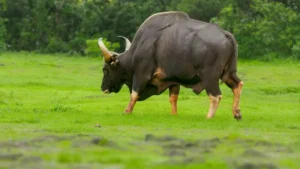The Telangana High Court recently made a landmark judgment, declaring the Telangana Eunuchs Act as unconstitutional. The Act, which had been in place since 1919, was deemed discriminatory and a violation of the human rights of the transgender community. The court’s decision has significant implications for the recognition and protection of transgender rights in Telangana.
Why in the News:
The Telangana Eunuchs Act came under scrutiny after a public interest litigation (PIL) filed by Vyjayanthi Vasanta Mogli, who argued that the Act was discriminatory and lacked legal support. The High Court bench, consisting of Chief Justice Ujjal Bhuyan and Justice CV Bhaskar Reddy, concurred with the petitioner’s claims and struck down the Act on July 6, 2023.
Judgment on the Issue:
In its judgment, the High Court bench declared the Telangana Eunuchs Act unconstitutional, highlighting its offensive and arbitrary nature. The court noted that the Act criminalized the entire transgender community and violated their fundamental rights. It specifically mentioned the Right to Privacy and Right to Dignity, protected under Article 21 of the Constitution of India, which guarantees every person’s right to life and personal liberty.
What Was Proposed:
The High Court directed the Telangana government to take specific actions to rectify the situation. First, it called for the repeal of the Telangana Eunuchs Act, acknowledging its arbitrary and unreasonable provisions. Additionally, the court ordered the implementation of reservations for transgender individuals in education and government employment sectors. This move aims to promote inclusivity and equal opportunities for the transgender community. The court also instructed the government to provide pensions to transgender people through the Aasara scheme, ensuring social and financial support.
About the Issue:
The Telangana Eunuchs Act, originally known as the Andhra Pradesh (Telangana Areas) Eunuchs Act, 1919, required transgender individuals to register with authorities under suspicion of child kidnapping. The Act’s provisions allowed for arbitrary arrests, punishable by imprisonment and fines, for engaging in public entertainment, wearing female attire or ornaments in public places, or associating with boys below the age of 16. The Act’s definition of “eunuch” encompassed individuals who admitted to impotence or showed signs of impotence upon medical examination.
The Way Forward:
Following the court’s judgment, the Telangana government is expected to take necessary steps to repeal the Telangana Eunuchs Act. In compliance with the court’s directives, the government must introduce reservations for transgender individuals in education and government employment. The Telangana Transgender Welfare Board will monitor the government’s progress in implementing these measures, ensuring effective support and protection for the transgender community.
Telangana: Key Points
Chief Minister: K. Chandrashekar Rao
Governor: Tamilisai Soundararajan
Capital: Hyderabad Formation: Separated from Andhra Pradesh on June 2, 2014
Official Language: Telugu and Urdu
Major Cities: Hyderabad, Warangal, Karimnagar, Nizamabad
Population: Approximately 39.64 million (as of 2021) Area: 112,077 square kilometers
Districts: 33 Legislature: Unicameral (Telangana Legislative Assembly)
Judiciary: High Court of Telangana (Located in Hyderabad)
State Animal: Spotted Deer (Chital)
State Bird: Indian Roller (Palapitta)
State Flower: Senna auriculata (Tangedu)
State Tree: Prosopis cineraria (Jammi Chettu)
Major Rivers: Godavari, Krishna, Musi, Manair




 Top 10 Most Popular Websites of 2026: Go...
Top 10 Most Popular Websites of 2026: Go...
 Meet Saba Shawl: The First Kashmiri Woma...
Meet Saba Shawl: The First Kashmiri Woma...
 Debrigarh Sanctuary To Showcases Rich Wi...
Debrigarh Sanctuary To Showcases Rich Wi...








